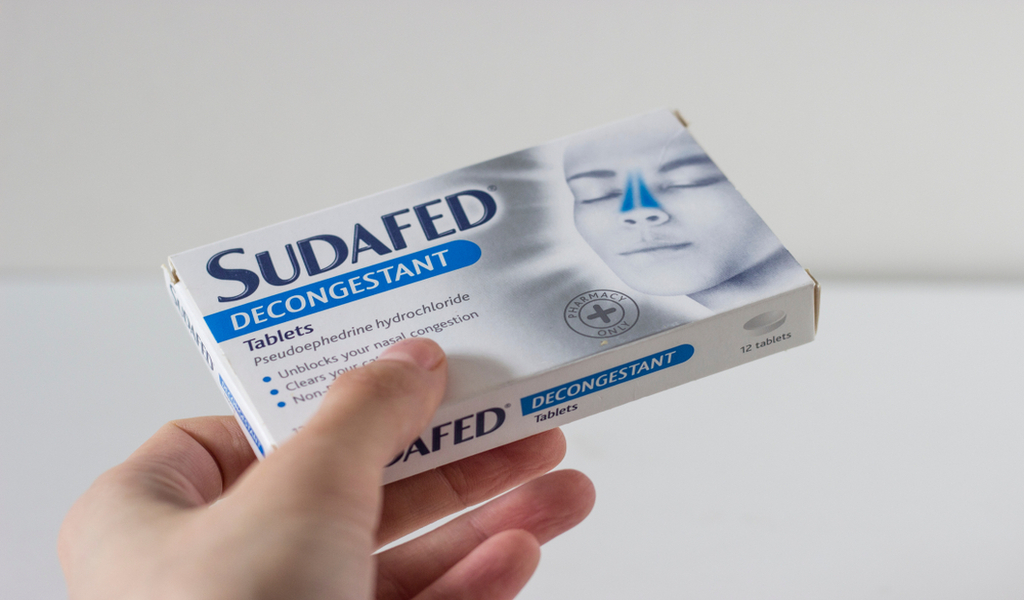(CTN NEWS) – Government experts who recently reviewed the latest research on a long-debated drug ingredient have concluded that the primary decongestant used by millions of Americans to alleviate stuffy noses offers no more relief than a placebo.
On Tuesday, advisers to the Food and Drug Administration (FDA) cast unanimous votes against the efficacy of the primary drug component found in popular products such as Sudafed and Dayquil, which are commonly found on pharmacy shelves.
Dr. Mark Dykewicz, an allergy specialist at the Saint Louis University School of Medicine, stated, “Recent, well-conducted studies fail to demonstrate any improvement in congestion with phenylephrine.”
FDA Reevaluates Phenylephrine: Impact on Over-the-Counter Decongestant Market
The FDA convened its external advisers to reevaluate phenylephrine, which became the dominant ingredient in over-the-counter decongestants after medications containing an older ingredient, pseudoephedrine, were moved behind pharmacy counters.
This shift was mandated by a 2006 law due to concerns that pseudoephedrine could be illicitly converted into methamphetamine.
The original versions of Sudafed and similar medicines, available without a prescription, now account for just one-fifth of the $2.2 billion oral decongestant market. The remaining share belongs to phenylephrine versions, often labeled as “PE” on packaging.
If the FDA follows the panel’s advice, major pharmaceutical companies like Johnson & Johnson and Bayer may have to withdraw their phenylephrine-based oral medications from store shelves.
This could prompt consumers to switch to pseudoephedrine products available behind the pharmacy counter or opt for phenylephrine-based nasal sprays and drops.
FDA Panel Calls for Reevaluation of Phenylephrine Due to Ineffectiveness and Safety Concerns
In such a scenario, the FDA would need to collaborate with drugstores, pharmacists, and healthcare providers to educate consumers about alternative congestion relief options, as discussed by the panel.
The panel also highlighted that studying higher doses of phenylephrine was not an option due to its potential to raise blood pressure to unsafe levels, emphasizing safety concerns.
This meeting was initiated by University of Florida researchers who urged the FDA to remove most phenylephrine products based on recent studies demonstrating their ineffectiveness compared to placebo pills in treating congestion caused by colds and allergies.
These researchers had previously questioned the drug’s efficacy in 2007, but the FDA allowed the products to remain on the market pending further research.
This time, all 16 members of the FDA panel unanimously agreed that current evidence did not support the drug’s benefit.
The panel essentially concurred with the findings of an FDA scientific review published prior to the meeting, which identified significant flaws in the studies conducted in the 1960s and 1970s that initially led to phenylephrine’s approval.
These studies were deemed “extremely small” and utilized outdated statistical and research methods no longer accepted by the agency.
Additionally, three larger, rigorously conducted studies published after 2016 found no difference in congestion relief between phenylephrine medications and placebos, further undermining the drug’s effectiveness.
FDA Considers Reevaluating Phenylephrine as an Over-the-Counter Decongestant
The Consumer Healthcare Products Association, a trade group representing nonprescription drugmakers, argued that the new studies had limitations and advocated for continued consumer access to phenylephrine.
Phenylephrine had received approval during a comprehensive FDA review initiated in 1972 and has been sold in various forms for over 75 years, pre-dating the agency’s regulations on drug effectiveness.
However, FDA reviewers noted that their latest assessment considered new insights into how phenylephrine is metabolized when taken orally, revealing that only trace amounts reach nasal passages to relieve congestion.
The drug appears to be more effective when applied directly to the nose, such as in sprays or drops, which are not under review.
The panel’s vote is not binding and will not have an immediate impact.
However, it opens the possibility for the FDA to remove phenylephrine from the federal list of effective over-the-counter decongestants, potentially saving consumers from using a drug with no proven benefit.
A 2020 law passed by Congress streamlines the process for changing the FDA’s drug monographs, which may lead to faster updates to nonprescription ingredient standards.
RELATED CTN NEWS:
Nipah Virus Outbreak In Kerala: 5th Nipah Virus Case Confirmed – What You Need To Know
China Appoints New Ambassador To Taliban-Led Afghanistan Amid Diplomatic Uncertainty
Libya’s Death Toll Surpasses 6,000 In Devastating Floods, Urgent Burial Efforts Underway







